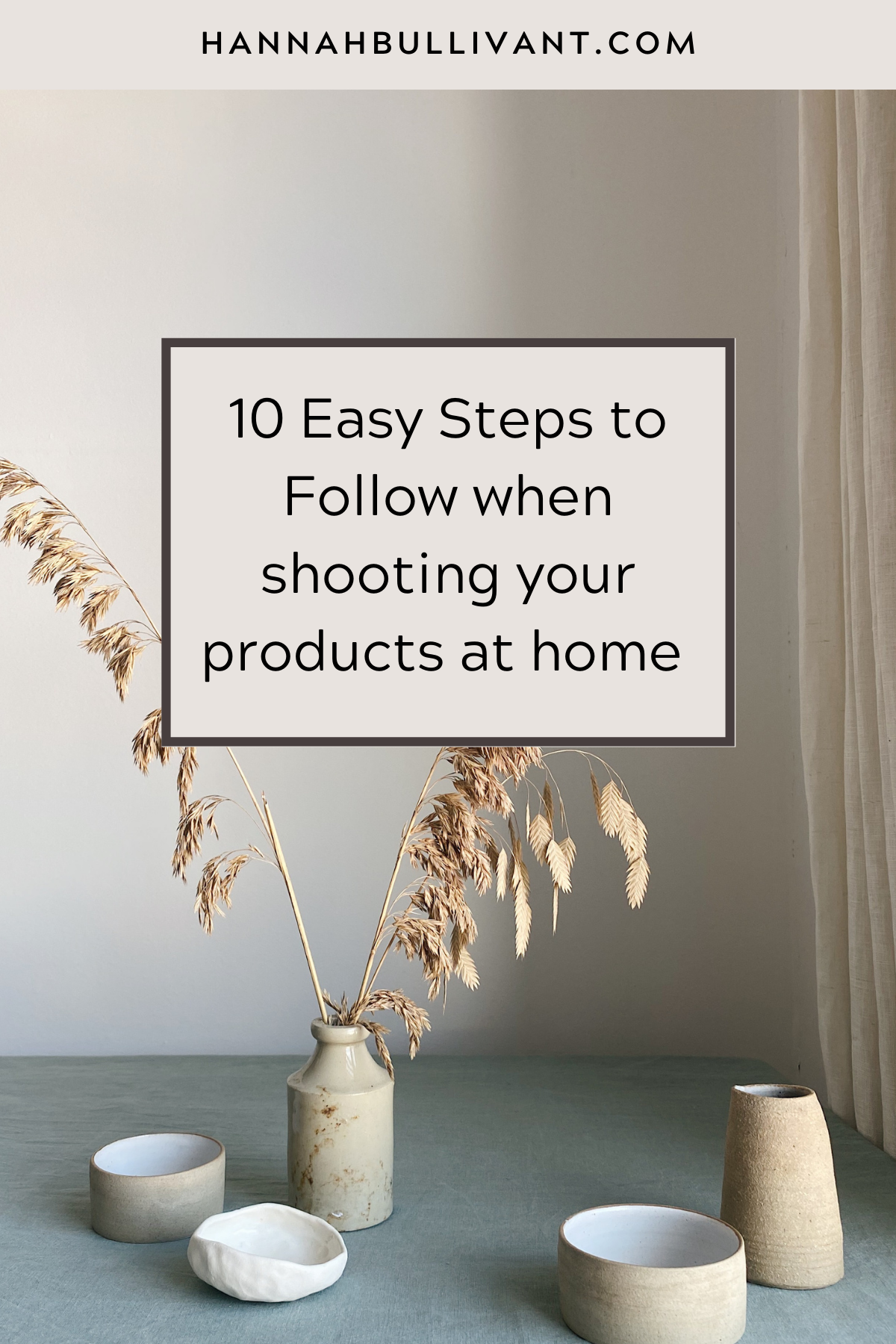10 Easy Steps to Follow when shooting your products at home
Imagery is the MOST important element in any business selling goods or services online. However, in light of COVID and with the busiest trading period just around the corner, many businesses are having to adapt to a very quickly changing market. Many are focussing their efforts onto online selling, and are finding that they need to create imagery that really stands out.
Unless you are planning on working with a photographer throughout the year, you will probably need to learn to take decent photos of yourself and your wares.
I have put together a Small Business Styling Toolkit which is a complete guide showing you how to create beautiful imagery for your business available to purchase here.
Today, I am sharing, a small fraction of the advice in the toolkit. Here are 10 Easy Steps to follow when shooting your products at home. Good luck!
Before you lift your camera make sure you have done the following:
You have thought about what your intentions are for the shoot and what you will use the images for e.g. website, press, social media etc. Sounds obvious, but important.
You have created a brief which includes a detailed shot tick list (the list of every product that needs to be shot and all the angles required. It’s really easy to lose track and forget to shoot something or forget to shoot an angle of one of your products for example. Fill in the brief worksheet (available in the toolkit). Have it to hand (printed off, written out, or available easily on your phone or computer) and refer to it frequently.
Pictured your ideal customer. How would they be using your product? What else would be in the scene? Get really specific on the details.
.You have props and backgrounds ready to go.
You have your Stylist Toolkit on hand: gaffa tape, hammer and nails, blue or white tack to keep things in place, microfibre cloth and cleaning spray, large clamps to hold things in place.
Considered all areas of your home - the hallway, stairs, bathroom, bedrooms, kitchen. Look for an interesting wall or floor that would make a great background. While you are exploring potential places for a photo shoot, take quick phone snaps so you can look through them together and decide where would be good. Be willing to move art and furniture to create as big a photo-taking space as possible.
Nailed your lighting. Stay away from lamps unless you’re a professional photographer, and instead make friends with natural window lighting. In short, You need to be by a window. If your window is beaming bright sunshine onto your set up, you might need to hang a thin curtain or bed sheet over the window to avoid harsh shadows. If you are trying to shoot in low light, don't. Honestly, it's better to postpone until you have better light.
Got some vibes going. Have some relaxing music playing. I also like having my essential oil diffuser going too. These things help to relax and ground me. Have water and snacks to hand too.
Have everything ready at least the day before so you can make the most of the day. Make sure the items you'll use to shoot are clean and pressed.
Set timers, or have a clock nearby to keep you to schedule (It’s easy to get lost in one shot, especially if you’re shooting by yourself).
The Small Business Styling kit is split into 8 beautiful modules that cover:
How to do your own styling for photoshoots and beyond
Writing a brief and a plan so you boss the shoot day and get the best possible outcome
Styling with a story and how to communicate it
How your styling can connect with your ideal customer
Composition - how to arrange the objects in your photos to create a compelling composition that draw your customers eye
How NOT to use props, and how TO use props
Sourcing props
How to style photos for service-based businesses
How to work with a stylist should you decide to hire one
The kit is all about the styling and stories and therefore doesn’t go into photography in detail. It does however touch on:
The critical importance of lighting, and how to find the sweet spots for shooting at home
Home set ups advice
Shooting on camera phones
More content will be added to the kit hub too, I want to make sure this is a genuinely useful resource for people. There’s a class coming up on camera phone photography, and a “style with me” video where I talk you through a shoot from start to finish.
Small businesses; what are your biggest challenges when it comes to getting good imagery of your wares?

